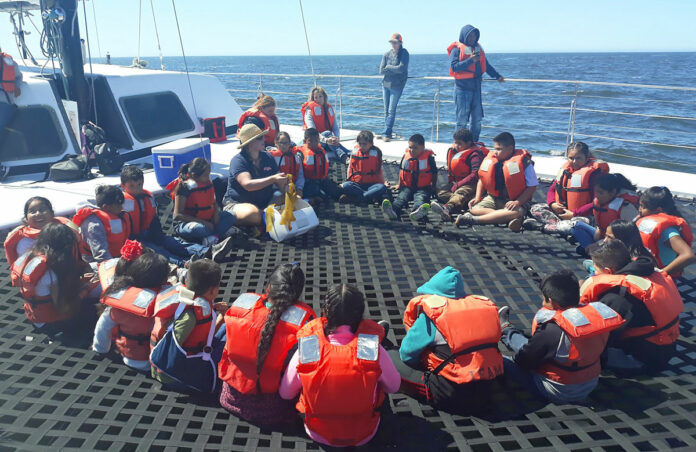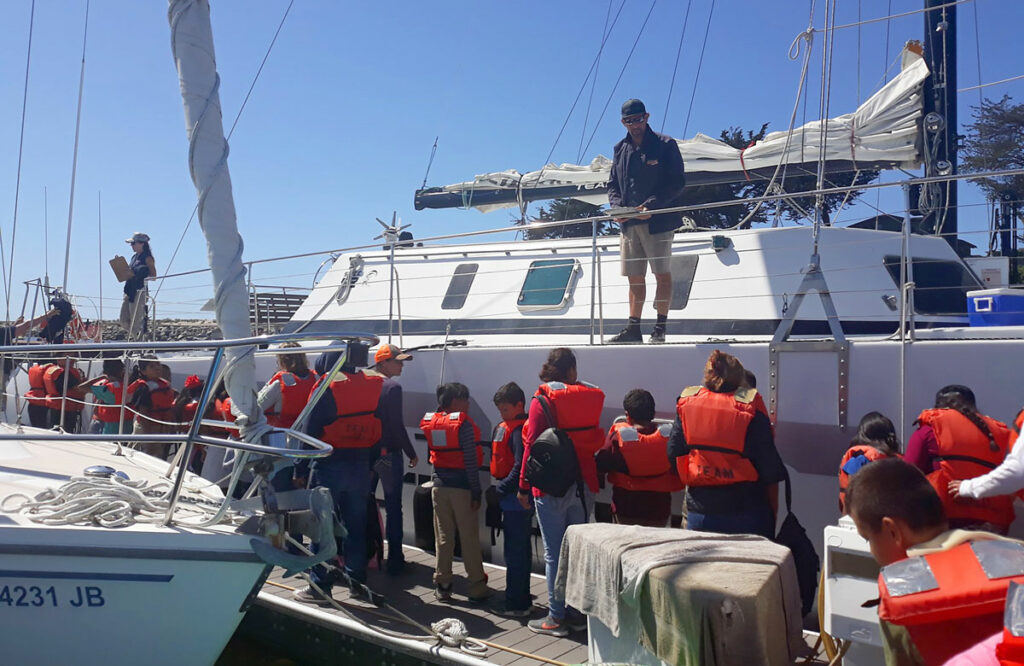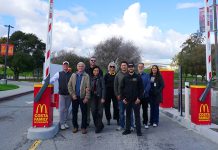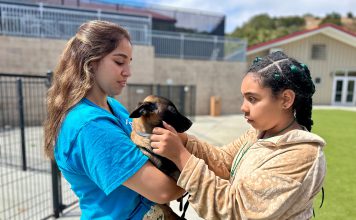
KING CITY — Last September, fourth graders at Santa Lucia Elementary School in King City boarded the O’Neill Sea Odyssey’s 65-foot catamaran.
As the boat sailed for 90 minutes on the sparkling waters of the Marine Bay National Marine Sanctuary, students participated in an enjoyable hands-on training in marine biology, navigation and marine ecology.
The field trip to Santa Cruz and the three-hour experience was free thanks to a grant.
Students are required to perform a project to educate the community about what they learned about protecting marine life and the ocean. Before the class had a chance to do this, the Covid-19 virus closed the school.
During a recent Zoom meeting, the fourth graders decided to share their thoughts with the local newspaper.
Wearing life jackets and sitting on the catamaran’s net, the students observed the moving blue waters as pelicans and black cormorants flew above them in the clear skies. Some saw a dolphin to the left of them, while others watched a sea lion and a sea otter pop up out to greet the fourth graders.
Back inside the O’Neill classroom, students got an extreme closeup of plankton and other tiny creatures under a powerful microscope, swimming in a drop of water that students had scooped up from from the ocean.
In 2018, fourth graders were able to get close to a curious teenage humpback whale that swam next to the moving catamaran. The small whale appeared to be watching the standing students holding onto the side rail. Then, after a minute, the whale waved goodbye with its tail and dove under the water.
“What I remember from the field trip was not to throw plastic onto the ground,” said student Alexis. “When it rains, the plastic is moved down the drains, into the sewers, and then finally into the oceans.”
Plastic ends up killing sea animals who mistake the plastic for food.
Classmate Giovani exclaimed, “Animals eat straws!”
Rodolfo interjected, “Don’t kill otters!”
Fellow fourth grader Dylan explained, “It is better to wash cars at car washes than from your home. At a car wash, soapy dirty water leads to a special drainage and from there to a water treatment plant where the water is cleaned.”
Isaac added, “Even a little drop of water contains a bunch of plankton!”
Instead of using plastic water bottles that wind up in the ocean, Dylan declared, “We should instead use reusable containers like canteens and thermos for carrying water.”
So, next time you’re out in the city, at the park or walking on the sandy beach, pass on the straws and drink your beverage of choice using the old-fashioned way by sipping it from a non-plastic container. The sea life, the birds and the oceans of the world will thank you for your help.
Submitted by Kevin Roberts, fourth-grade teacher at Santa Lucia Elementary School.















